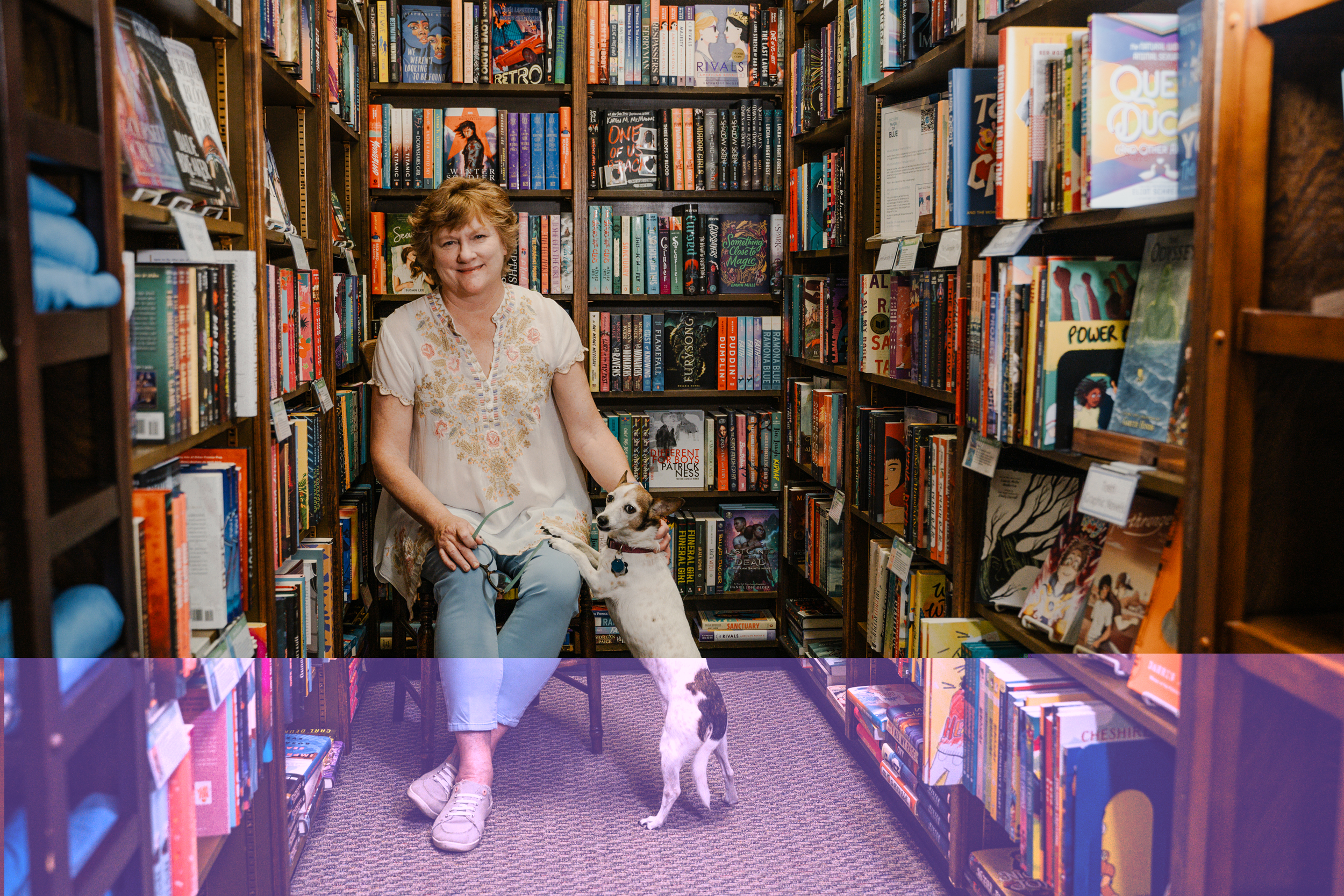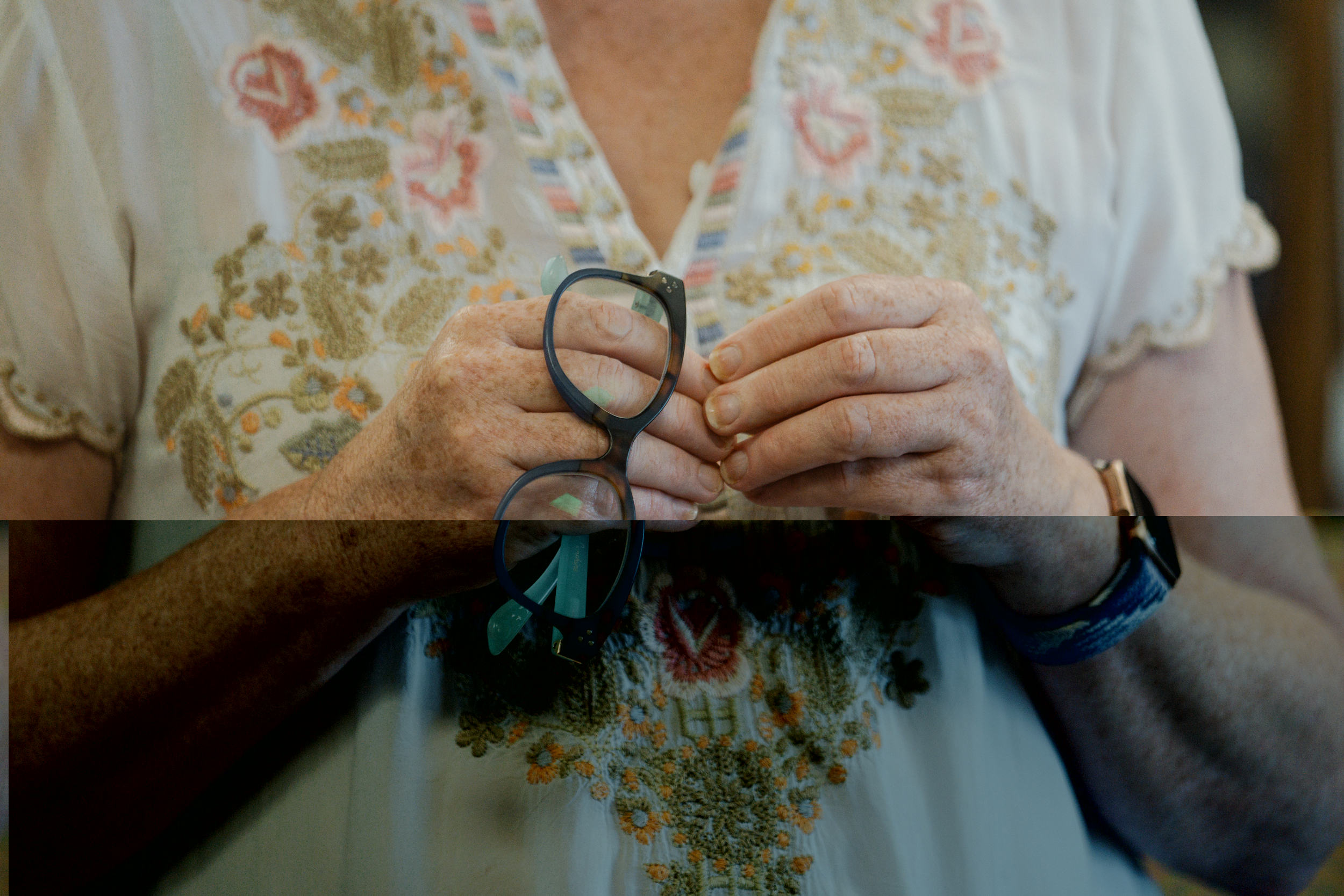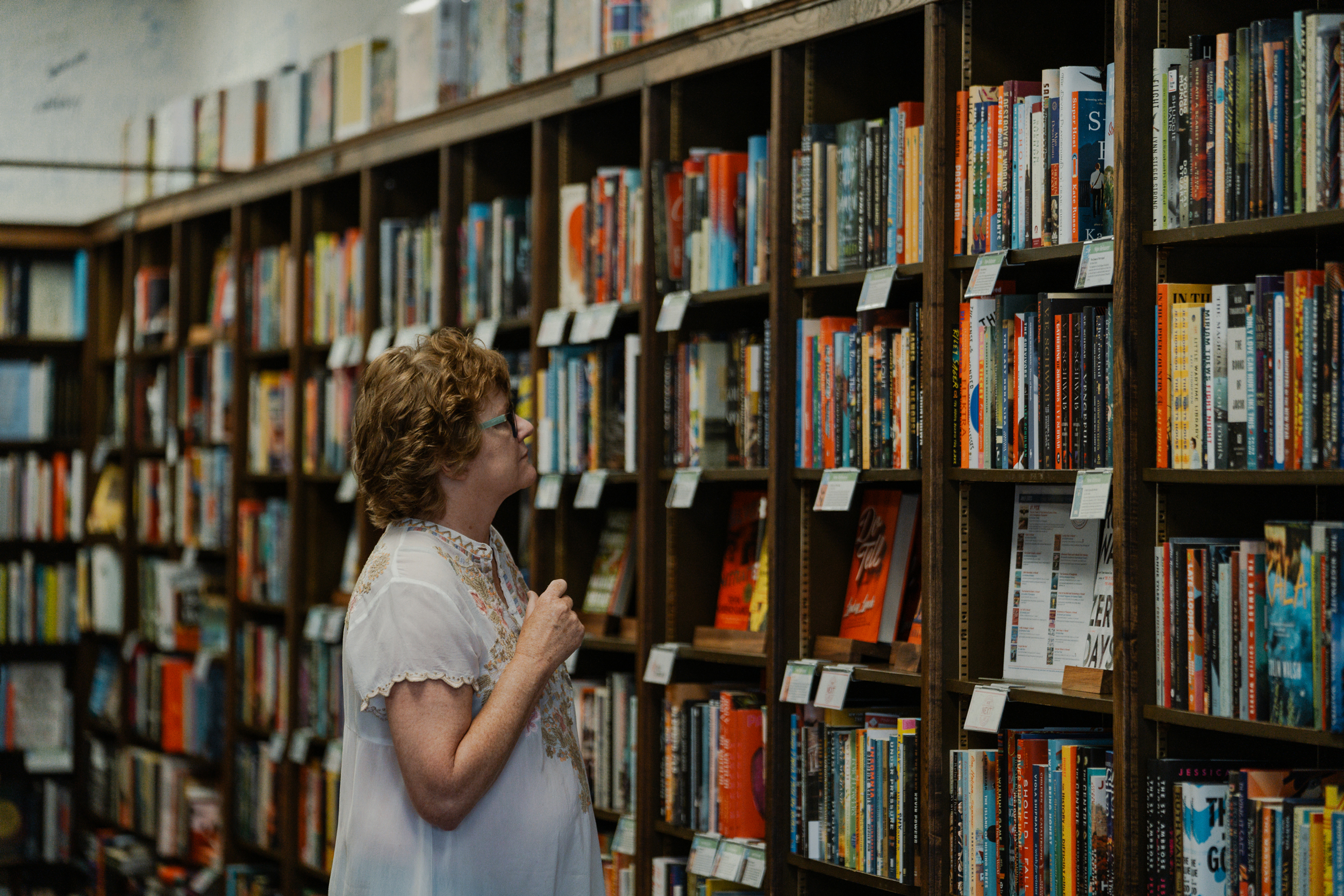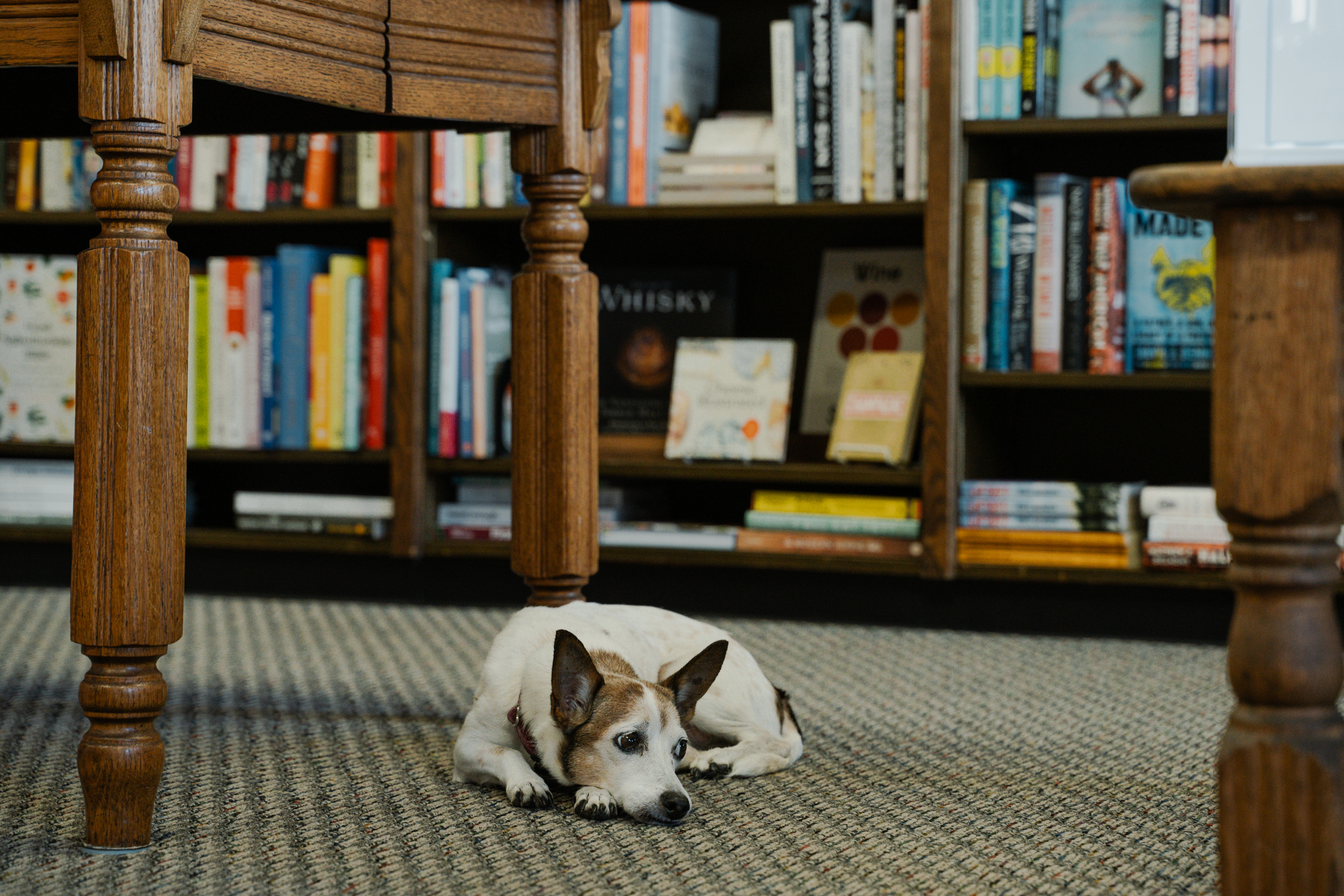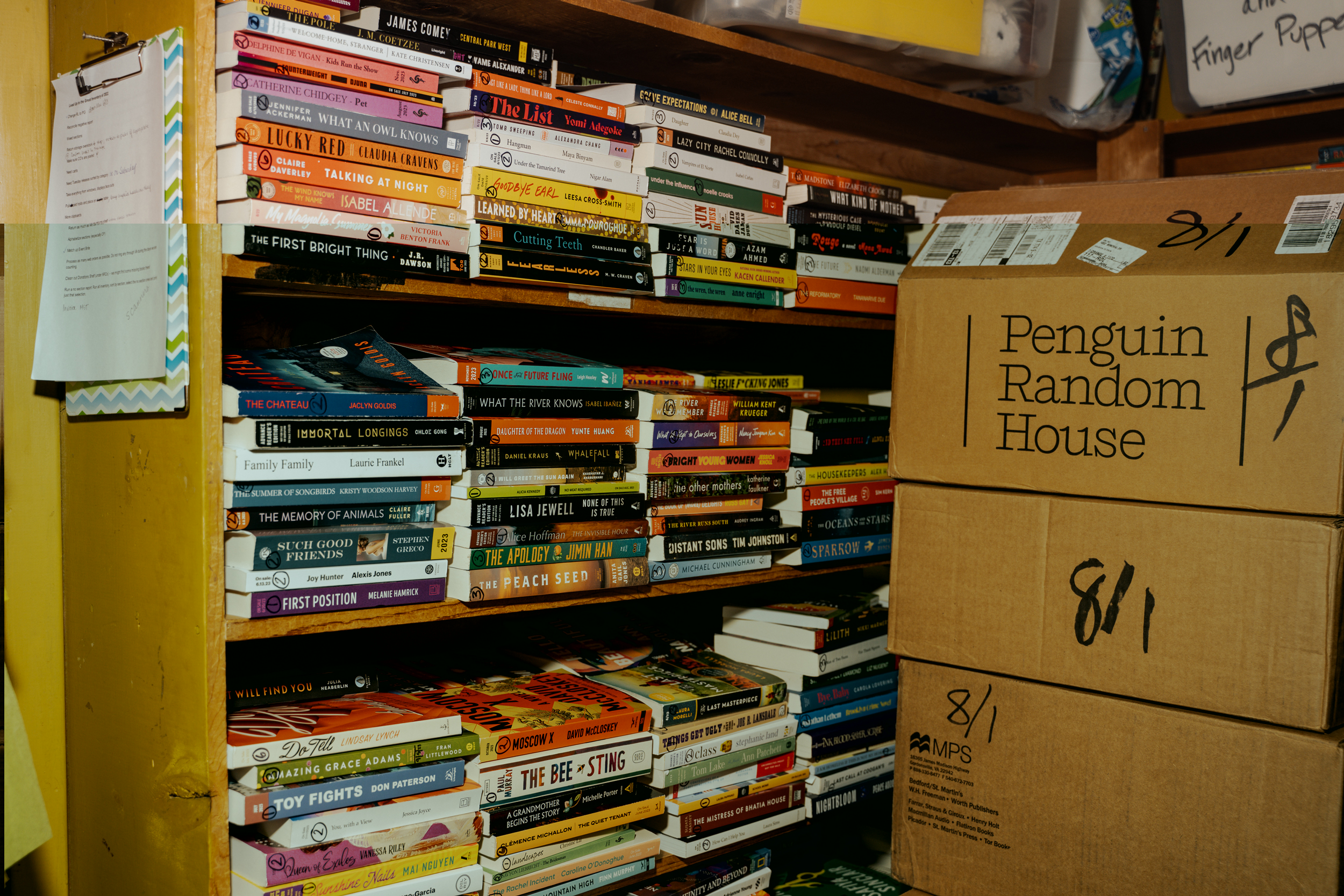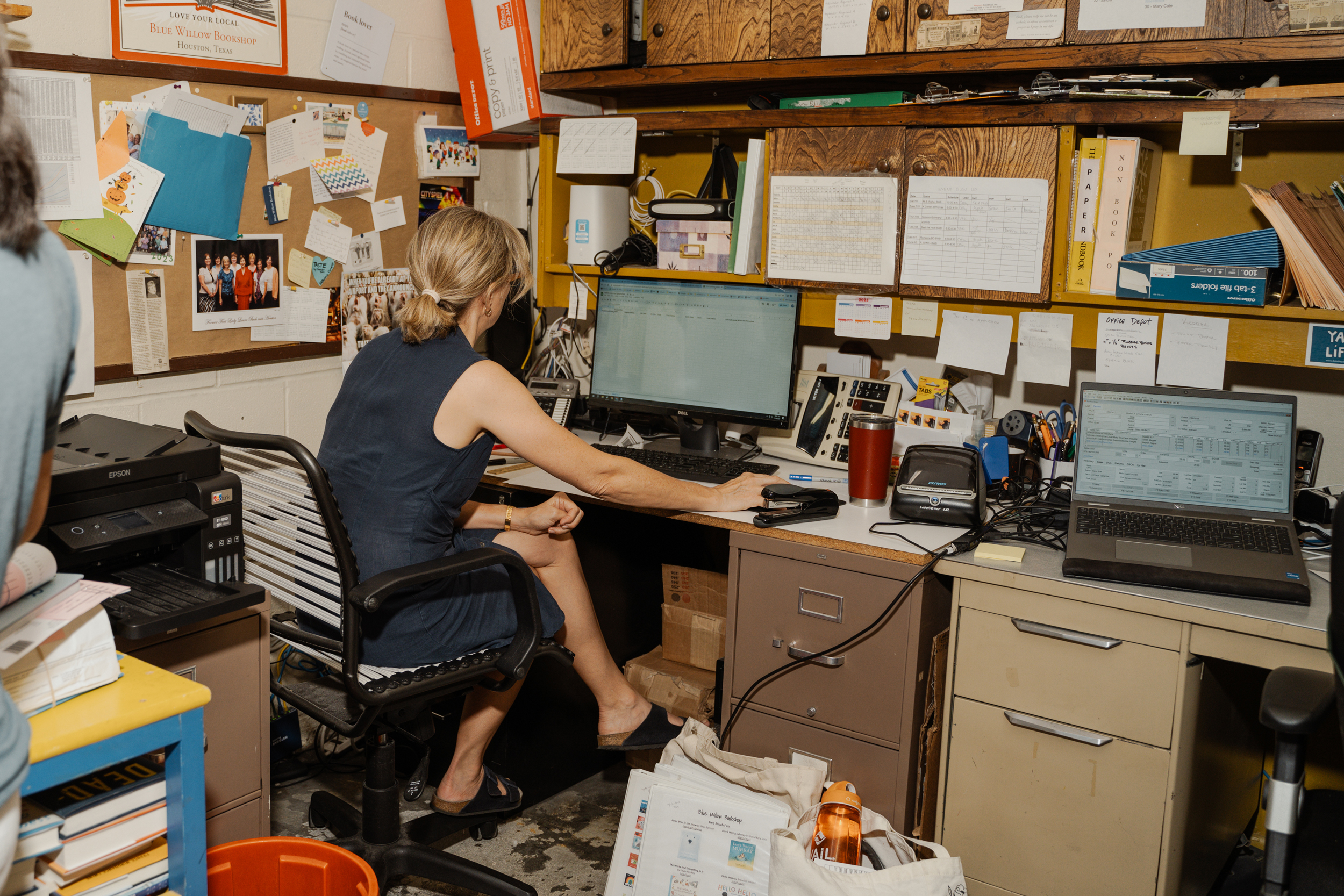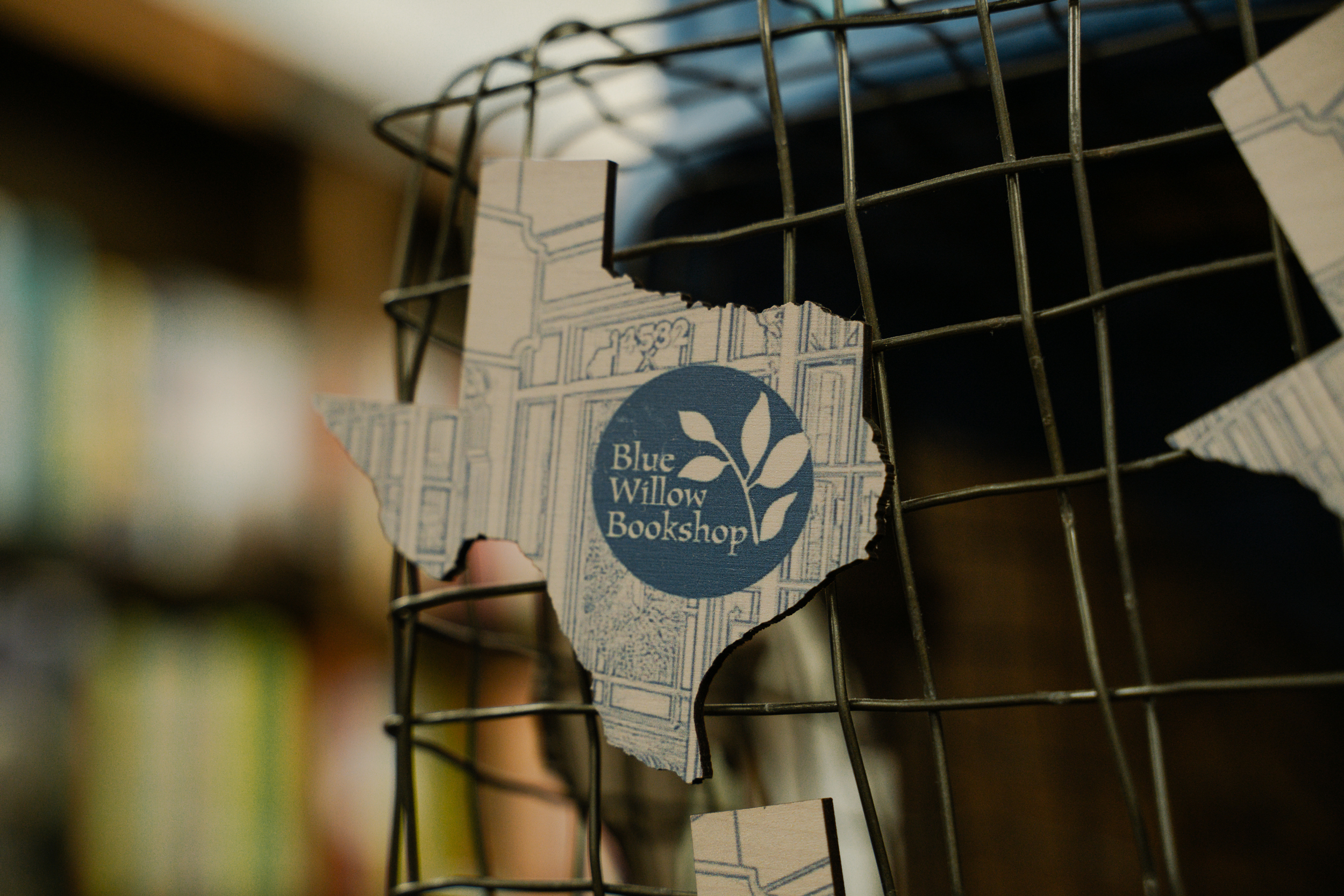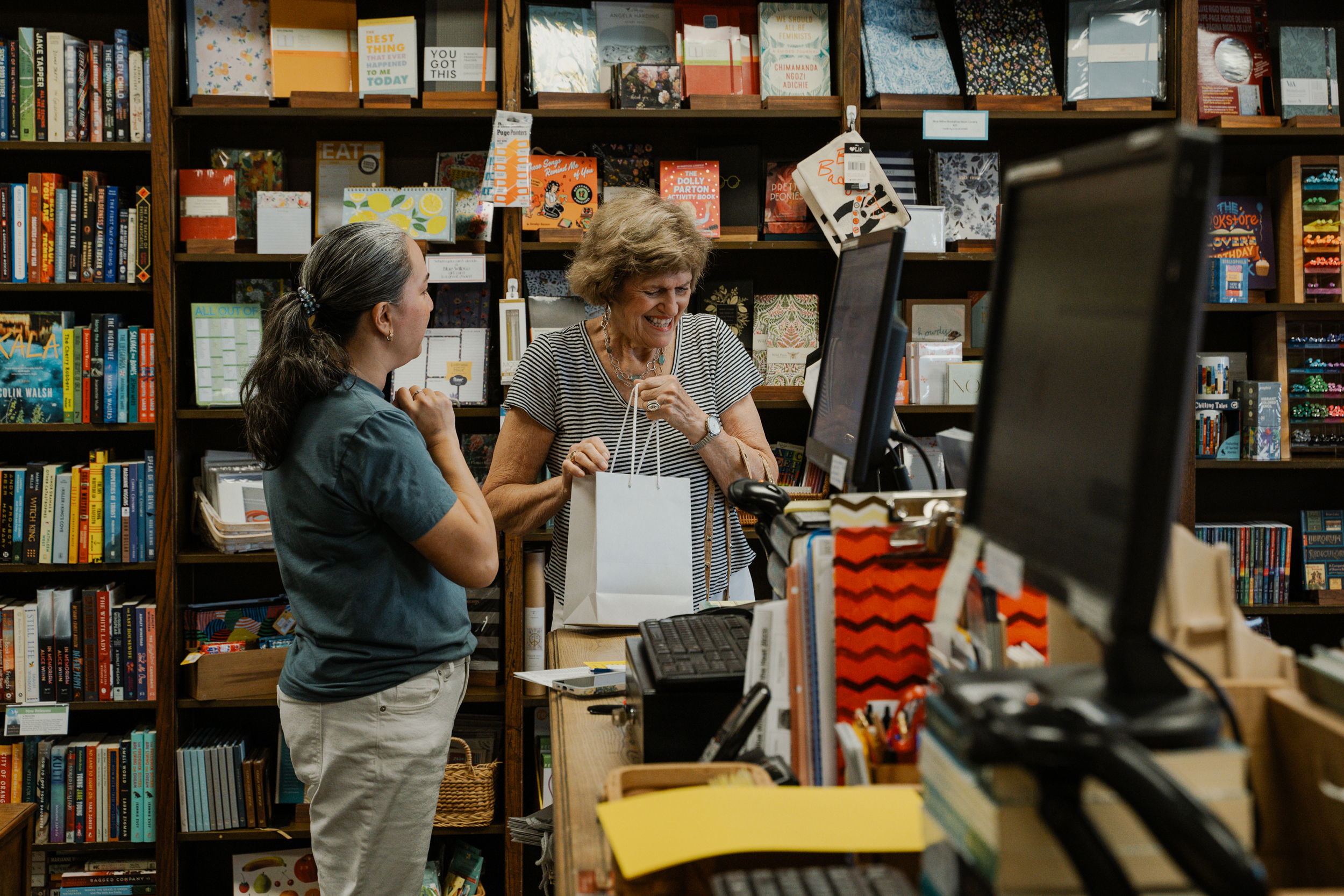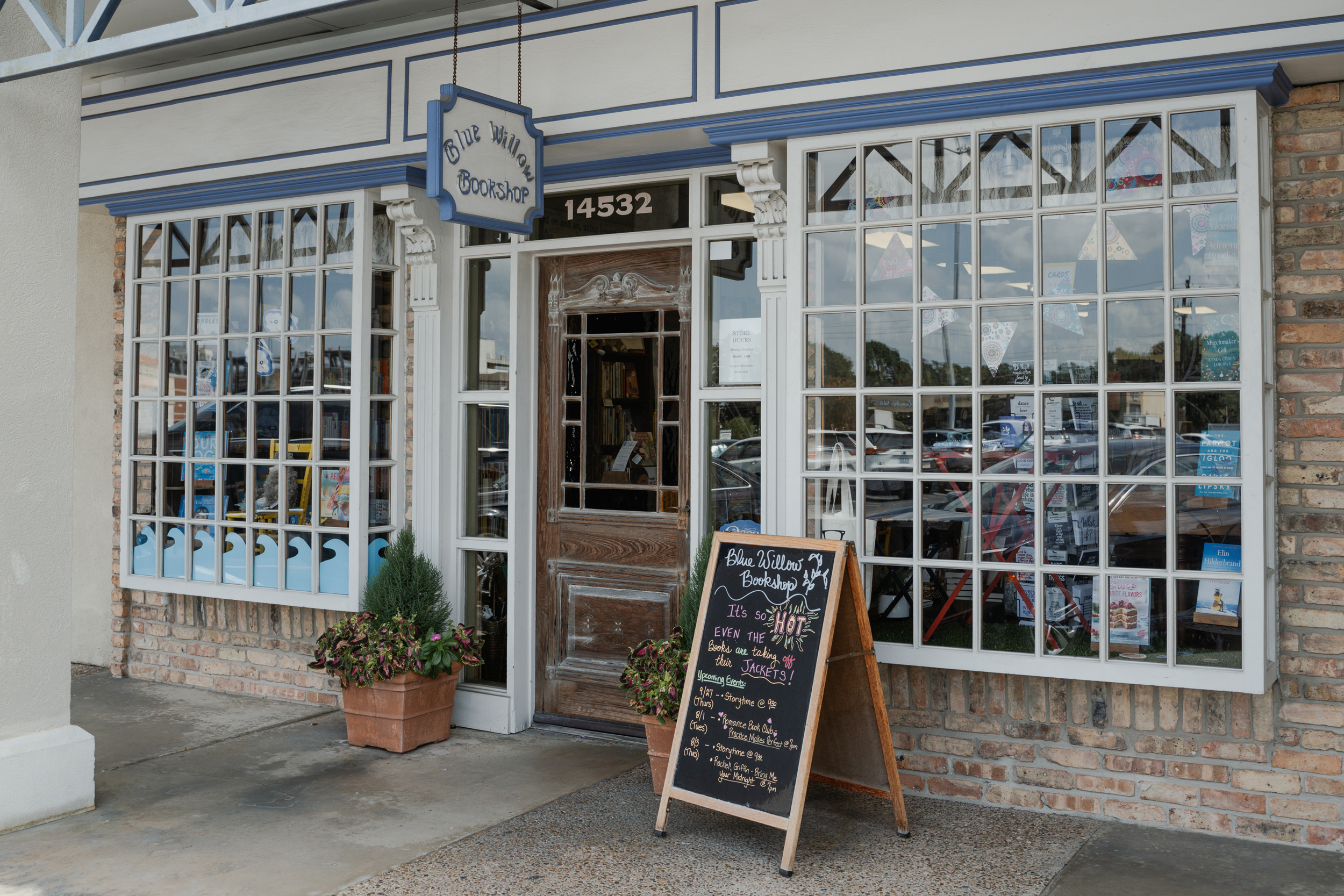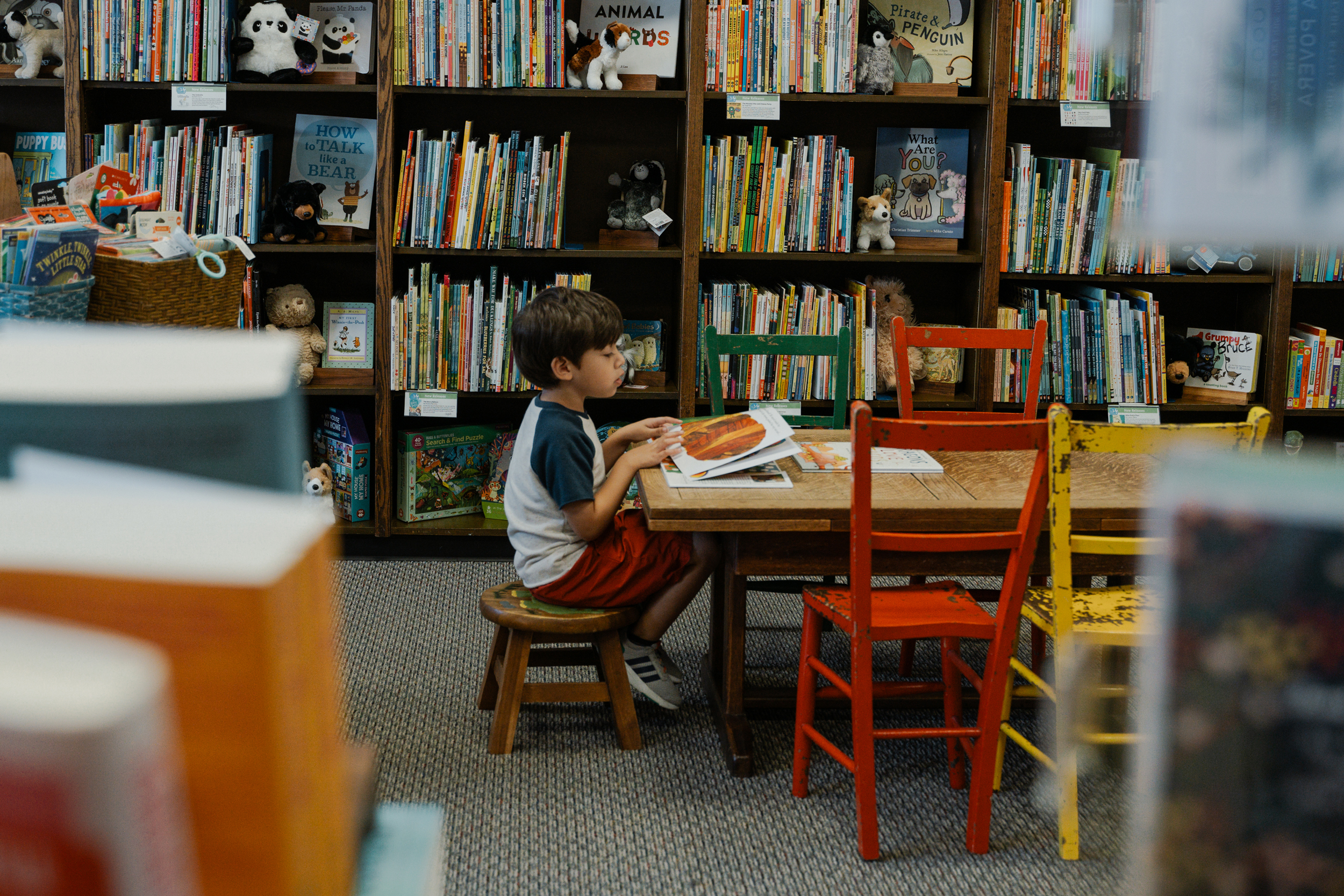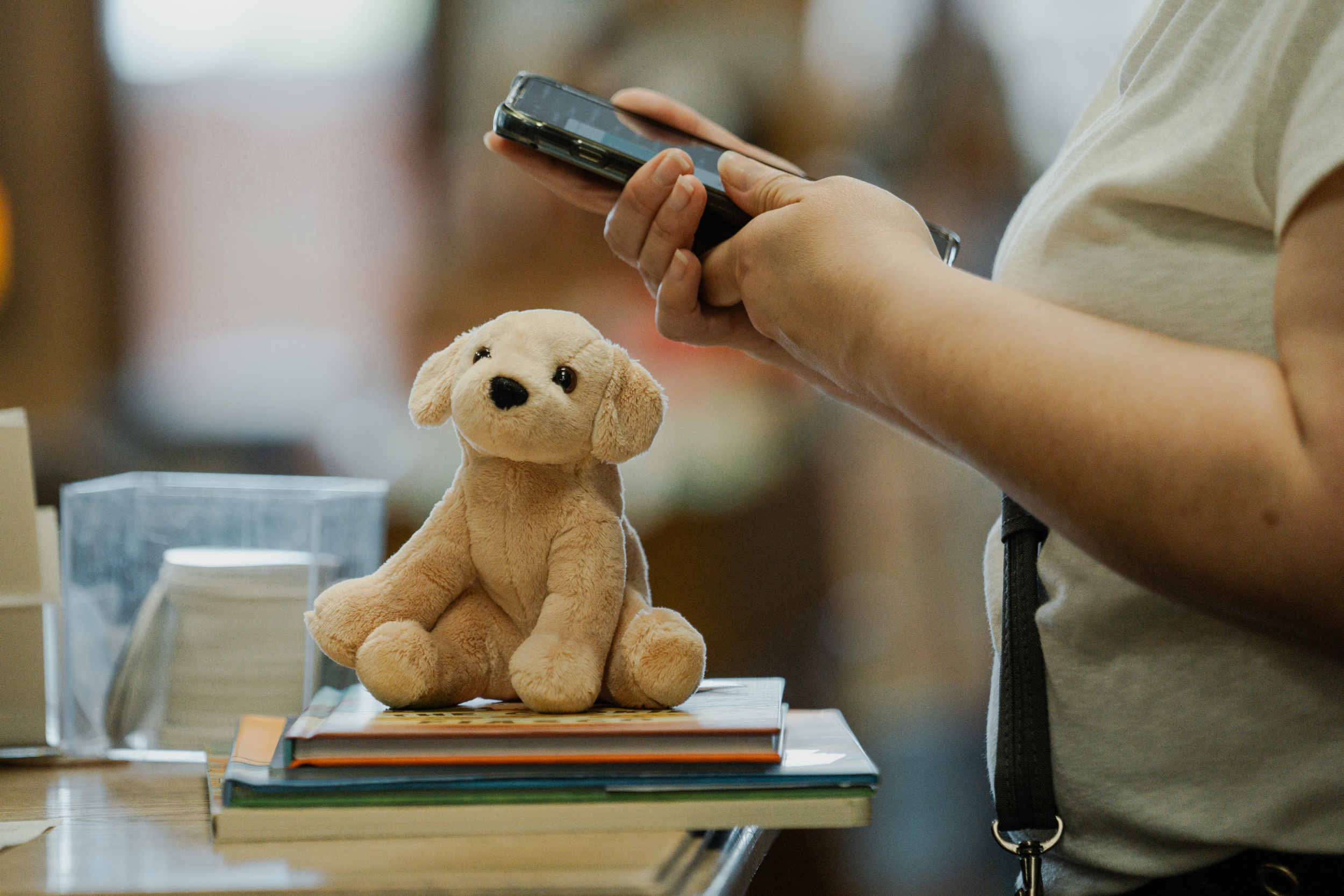|
Getting your Trinity Audio player ready...
|
Oftentimes, children’s stories begin with an unlikely hero.

“Our young protagonist — boy, girl or animal — is facing an obstacle or challenge,” says Valerie Koehler, owner of Blue Willow Bookshop, an independent bookstore tucked into a strip mall on Memorial Drive in west Houston.
She’s scanning the shelves to the right of the shop’s front door and its signature, sing-song bell, where thousands of picture books greet her customers. Some books sit, spines out, coloring the shelves like a line of ice-cream sprinkles standing at attention. Others face forward, flanked by stuffed versions of those protagonists: a small, plush cow next to “Click, Clack, Moo”, and a bunny beside “Guess How Much I Love You.”
The obstacles faced in children’s literature are usually pretty overt. A very specific challenge a young reader can understand and become invested in. It doesn’t have to be a Big Bad, like a dark-cloaked villain. It can be about something that just doesn’t seem fair: A new rule, perhaps, that threatens their rights.
“Sometimes the challenge is just understanding the situation,” says Koehler, who finds herself currently facing such a challenge. And sometimes, she adds, the challenges brought forth in the books lining this vibrant wall of words “are to teach kids to speak out and say, ‘That’s not right.’ To ask, ‘How can I fix that?’”
An unlikely hero
Koehler has sold more than 300,000 books since she began her latest record-keeping system in 2008, plus thousands more in her business’s first 12 years. Yet for more than a quarter century selling books, she never would have guessed her little shop would become its own plucky protagonist, speaking up to say, “That’s not right. How can I fix that?” And certainly not in a high-profile lawsuit against some of Texas’ top officials.
Yet here she is: an unlikely hero.
Last week, Blue Willow, along with the Austin bookstore Book People, and a coalition of publishing associations filed suit to stop a new state law that would require all booksellers who do business with public schools in Texas to rate books according to sexual content. Not only would Blue Willow have to rate every book it plans to sell to a school — an amount of work that Koehler says she cannot support financially in her 14-person shop — it would also require stores to rate all books sold to schools in the past if they are still in circulation.
Remember how Koehler updated her record-keeping system in 2008? That’s important here, because she doesn’t actually know how many or which books she sold before the point-of-sale system changed. How, she asks, could she ever go back and rate all the books she sold when she opened in 1996 if she can’t even remember what they are?
But, perhaps even more importantly: Why should she?
The suit, filed in the U.S. District Court for the Western District of Texas, contends that the law, H.B. 900, which is slated to go into effect next month, violates free speech rights protected by the First and Fourteenth Amendments. H.B. 900 demands that booksellers rate books for school-aged children, dividing them into three categories — “sexually explicit”; “sexually relevant”; and “no rating” — using yet-to-be-defined metrics. It grew from a list of 850 titles questioned by former state Rep. Matt Krause in 2021, which includes more than 400 books about LGBTQ topics.
“We should be able to sell books that are requested,” Koehler says.
But according to H.B. 900, booksellers that don’t comply, or whose ratings are challenged by the state and found to be inadequate — a determination for which there is no appeal — will be blacklisted from doing business with public schools.
That, too, would have major ramifications for Koehler, who says about 20 percent of her sales go to schools.
The law sandwiched her between two impossible choices. But that’s the moment in a story that Koehler knows better than most.
Rating books
Booksellers do, of course, rate books all the time. Take a few minutes or so to waltz around Blue Willow, and you’ll find the hand-signed book recommendations affixed to the shelves below new titles the staff found particularly enchanting. Back behind the store’s retail space in Koehler’s office, there are shelves littered with dozens of Advanced Readers Copies — a never-ending To-Be-Read pile the staff devours when they’re not ringing out customers. It’s an integral part of the research process to determine what to shelve. And one of the most charming parts of visiting any small bookstore comes by talking to a staffer who’s well-read enough to help you find something that will suit your tastes.
Blue Willow’s always excelled at that, as far as I’m concerned. They’re the ones who turned me on to several of my favorite contemporary authors. And they’re the ones who curate the monthly mail-order reading program my sister-in-law bought my daughter into for her first birthday. The books they choose for my kid always feel somehow perfect. They’re age appropriate. The pictures are beautiful. And those plucky protagonists, like the well-meaning, nervous dog that stars in “Oh No, George!”, which they sent my daughter shortly after her birth, have a way of sticking with me. (Ironically, my well-meaning, nervous dog Teddy ate that book; we had to buy a second copy.)
But that’s me. And them. My bookstore.
They know how to choose for me, because they’ve learned my tastes. More importantly, I have asked them to choose for me. Koehler can point to a book on the shelf, and say, “This one will be good for you” — like she did the other day when she handed me, “This Is A Story,” by John Schu — and nine out of 10 times, it is.
That’s the beauty of a store packed with employees who are dedicated to giving individualized customer service to a city full of readers who want more than a Goodreads algorithm to assist them in their hunt for their next favorite story.
And that’s already an exhausting task. As Koehler says, “If we’re not selling a book, we’re reading a book.”
The time it takes to rate books according to the three categories will beat this part of the bookstore’s process out of its operating practice due to a sheer lack of time. It will, in effect, kill the joy in one of the city’s happiest places.
A call to action
“Two years ago, it would have surprised me that we were involved in a suit like this,” Koehler says, standing just in front of the register, where an employee is on the phone with someone who’s called to express their support in the lawsuit. They’ve received a lot of those calls, and even orders from far-off places, since The New York Times featured the bookshop in a story last week. (Yes, they’ve received some hate, too.)
Koehler’s feet are on the little wooden runway bisecting the front of the room. To her right, as she faces the door, is the children’s section; to her left, a pastel-and-pink assemblage of new titles for the shop’s Summer of Love section.
“For years, I told the staff, we’re right down the middle. Just like this here,” she says, pointing to that little wooden runway. “But this is the hill. They say, ‘Where’s the hill you’re going to stand on?’ And this is it.”
The store has always made it a practice never to judge readers for the books they seek. That’s one of the things I love the most about Blue Willow. After too many hours a week writing columns, my genre of choice is a nice, pastel-covered rom-com for my off hours. I don’t always get to write happy endings in the stories I’m paid to tell. So I look for them in the books I read. I’ve been side-eyed at shops across this city and the nation for some of my choices. But never at Blue Willow.
“People will come in and say, ‘Well, you wouldn’t carry this kind of book,’ but you’d be surprised. You’d be surprised. And if we don’t have it, we’ll order it for you, because I’m not going to judge you,” Koehler says.
“But now we’re being asked to be the judge.”
Share your Houston stories with me. We can start on Twitter, Facebook and Instagram. Or you can email me at [email protected].


